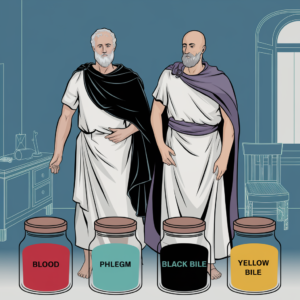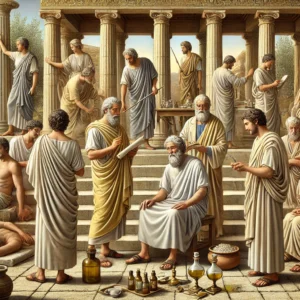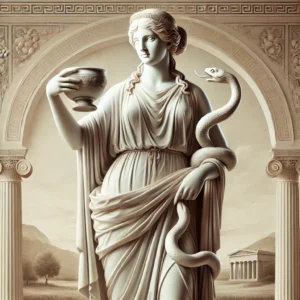Working Hypothesis
A healthy person is in balance with their body, their mind and the environment
Facts & Findings
More than 100 teachings attributed to Asclepius and other ancient authors describe the basis principle of “HOMOESTASIS” for the well-being of every living thing on earth. Especially in man, these law of balance has to applied on three levels;
1st level: The body has to be in balance
2nd level: The body has to be in balance with the mind
3rd level: The body-mind has to be in balance with the universe
The Asclepian Medicine has developed recipees allowing its user to keep or regain its balance level by level. These recipees have been preserved and deciphered.
Conclusion
We sense a growing demand and desire in our societies to put “well-being” back into our life plans.
Perhaps now is the perfect moment to revive ancient wisdom and bring it into the present day
Modern Application
This webpage explores the revival of Asclepian Medicine, integrating the insights we’ve gained over the last 2,500 years to create a modern, holistic, and personalized approach to healthcare for today’s world!
Comments by the author
One of the fundamental differences between Asclepian Medicine (AM) and modern medicine lies in their perspectives and approaches. In AM, illness was viewed as the absence of well-being, much like darkness is the absence of light. The primary focus of an AM practitioner was on maintaining well-being, with most of their clients being healthy individuals seeking to stay that way, emphasizing a holistic and personalized approach.
In stark contrast, modern medicine often zeroes in on illness, dissecting it into diseases and isolated symptoms. Physicians today are predominantly trained to treat sickness rather than foster health, with little exposure to healthy individuals and limited understanding of well-being. The entire system is geared towards managing chronic illness and detailed diagnosis and treatment, often at the molecular level.
Anecdotes
A foreigner visiting ancient Greece once asked for advice on how to find a good doctor for his family. The response was simple: “Look for a rich one!”
This might sound odd at first, but it made perfect sense in the context of ancient Greece. Villagers or townspeople paid their doctor as long as they remained healthy, but if they fell ill, they would stop paying and the doctor would have to provide costly treatments to restore their health. Therefore, a wealthy doctor was one who had mastered the art of preventing illness, keeping his community well—a clear and effective incentive for preventive medicine.






